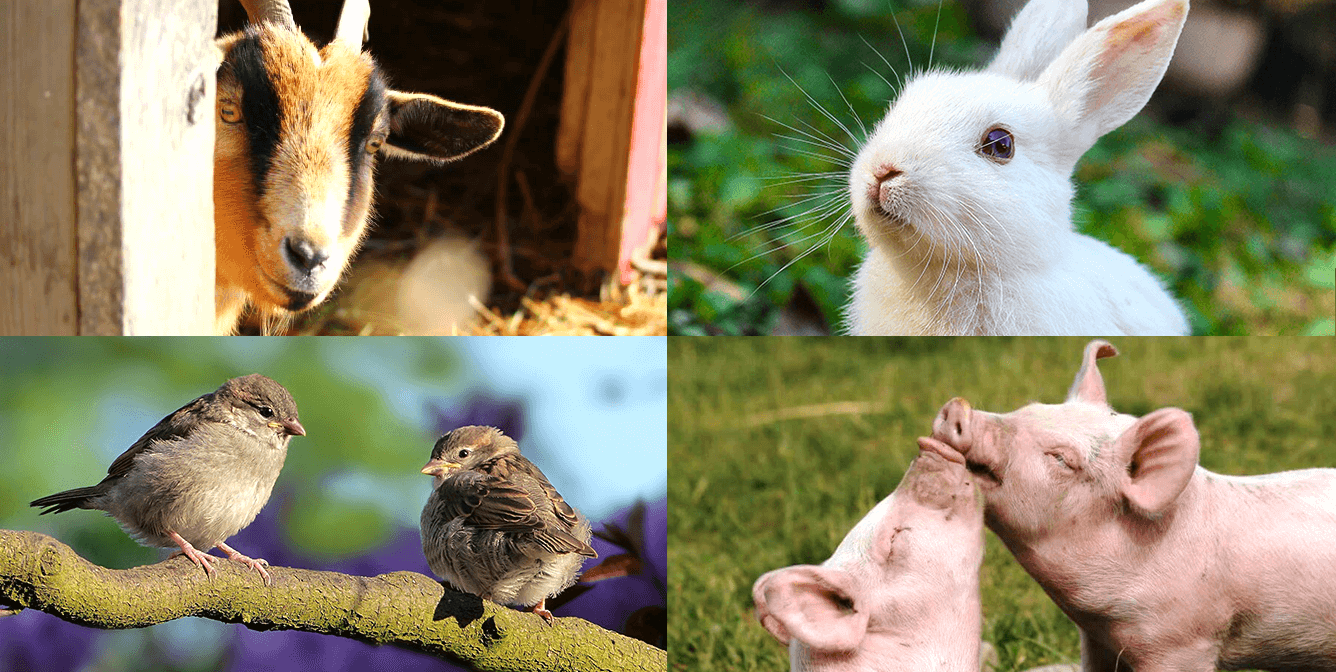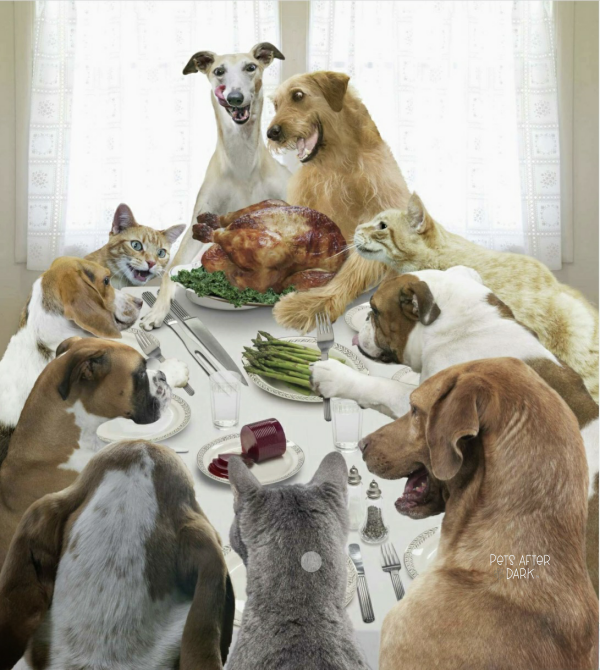
sen·tient /ˈsen(t)SH(ē)ənt/ adjective 1. able to perceive or feel things.
I recently presented at the Institute of Critical Animal Studies (ICAS) conference on “Recognizing Non-Human Animals as Sentient Beings”. I
Weeknights 7PM - Midnight
Weekends 8AM - Midnight

“There is a puppy in a shelter within 50 miles of you that’ll fit your family.”
Dr. Ariella Samson
While discussing the challenges of getting a puppy from a breeder vs. a shelter, Dr. Samson said this:
“If you don’t know who mom is, you don’t know who dad is, you’re not going to have all the background information. You’re not going to know exactly what to expect when it comes to temperament. Temperament as a puppy can change drastically at social and sexual maturation and that is a bit of a toss up. You don’t know what’s going to happen once they mature, whereas with a responsible breeder you should know what that dog’s general temperament will be.”
After a career spanning almost 28 years to date and still counting (and learning) , Kelly Wilson also has a thing or two to say about the temperament of shelter animals. After all , Kelly started her career at the Humane Society which then became Humane Animal Rescue Pittsburgh, or as we know it today as HARP. During that time Kelly was able to develop a keen sense of intuition about dogs that do not have a history. Often times, shelter dogs have no documented lineage. They just need a place to live.
“There are a lot of people that will bring dogs in and totally lie about where they found the dog , so I think it can get messy.”
But does that make them a bad candidate for adoption? Not necessarily. Kelly stressed one thing over and over.
“ Dogs that are food driven are easier to train because it’s the easiest form of reinforcement. If they like food, you’re going to be able to get a lot more training in than with a dog that maybe has some anxiety and won’t eat.”
And out of curiosity, are there any specific breeds that are easier to train?
“No. There’s been difficult Labradors, easy Labradors, difficult Chihuahuas, easy Chihuahuas.”
And so the story goes. As we mentioned last week, finding the perfect pet for your family requires time and “patience” as Patti Herhold of Snowbelt Aussies stressed. But talking to two experts that have extensive history in shelter animals, one of the running threads that came up several times was a point that Dr. Samson drilled into:
“You’ll find hundreds of thousands of people in this country that adopted puppies and have had phenomenal times with them. And I know a couple that have purchased from responsible breeders and have come up with something that they never in a million years expected, that the breeder didn’t expect. Usually if it’s a good responsible breeder, the lineage is discontinued once they know. Sometimes wires get crossed, no matter who’s putting the mom and the dad together to breed.”
Integration Into the Home
Puppy Culture
If you are in the frame of mind of getting a puppy, one interesting buzzword you will hear a lot is Puppy Culture . What is Puppy Culture and why is it important? Kelly discussed this topic with rave reviews.
“It’s a nice kind of puppy self led socialization protocol which definitely is least aversive to the puppy. We’re not throwing loud noises at them. The breeders aren’t doing crazy things. They’re reading the puppies and doing the socialization according to each puppy. They do have a program they follow and I find that most dogs, at least in my classes, that come from breeders that use Puppy Culture are the most confident and well adjusted puppies.”
If you are in the frame of mind of getting a puppy, one interesting buzzword you will hear a lot is Puppy Culture . What is Puppy Culture and why is it important? Kelly discussed this topic with rave reviews.
“It’s a nice kind of puppy self led socialization protocol which definitely is least aversive to the puppy. We’re not throwing loud noises at them. The breeders aren’t doing crazy things. They’re reading the puppies and doing the socialization according to each puppy. They do have a program they follow and I find that most dogs, at least in my classes, that come from breeders that use Puppy Culture are the most confident and well adjusted puppies.”
Shelter Vs. Rescue
Shelters are typically government-funded and operate as a physical facility, while rescues are often private, non-profit organizations that rely on donations and volunteers.
Rescues may also be more selective in the animals they take in and can offer more personalized support during and after adoption.
The Cost of Altruism
Are you looking for a good deed or a good dog? Perhaps both! And this is where the adoption process can be the shining star. We all know that one person that collects animals because they feel that is their calling. They are always at the shelters looking for new animals. Realistically speaking that is not the norm. If you want to do good by adopting from a shelter or rescue and you want to find that one special pet to be a premium member of your family, you are in luck. If we have learned anything from Dr. Samson and Kelly Wilson, where the pet comes from is less significant than where the pet ends up. And as Dr. Samson so articulately reminded us:
“Nature and nurture are both there. So yes, there is going to be some of the nature that you’re not going to have all the background of. But there’s still going to be the nurture, because you’re bringing it home at a period of its life where you’re going to be able to socialize the pet. You’re going to be able to choose how you train it and with what methods you train it, which makes a big difference.”
And that old saying “No good deed goes unpunished” applies here. Because regardless of which direction you decide to go, shelter, rescue or purebred, as we discussed in Part 1, they all have a cost. Feeding, medical, training, etc., adds up. Last week our Newfoundland experts, Rhoda and Dave Hartmann stressed the importance of having pet insurance to help pay for that one medical situation that you didn’t expect or plan for. Like the Hartmanns, Dr. Samson is on the exact same wavelength;
“I am recommending to anyone and everyone I see at this point to get pet insurance, because the odds are at some point in your animal’s life it is going to have an emergency or need a surgery that is going to be outside the amount of money you have sticking in your bank account right then and there.”
And Nancy Melone last week also stressed the importance of understanding the cost of caring for a dog, especially big ones like the Bernese Mountain Dogs she breeds:
“They can have health issues that are expensive to treat, including orthopedic issues , GI issues and cancer, which is a big issue in the breed. Similarly, they don’t have the appetite of a Yorkie or toy poodle. Quality pet food for a large breed costs money.”
Now it’s time to make some decisions. Purebred, shelter, rescue? Small dog or big dog? But once you hone in on your decision making , you’re going to be faced with the most difficult decision yet. Which dog do I pick? A puppy from a litter if you are at the breeder? A nine month old from a shelter that has been given up?
Kelly Wilson summed it up perfectly:
“I have known lots and lots of people just based on gut intuition where they go, and a dog picks them, and it has worked out. One second I am at the shelter and this dog picked me, and it would never be a dog I would have ever chosen. I would have never gone looking for a scruffy poodle mutt. She was matted head to toe. I couldn’t see his eyes. I didn’t even know what kind of dog he was. He walked over to me. He was in a little kennel and he came to the front and I said to the staff “Can I go in there?” He climbed right up my leg. I picked him up and I I said: “I’m taking him home.”
By
Dr. Caroline Simard-Swimmer and Howard Swimmer

I recently presented at the Institute of Critical Animal Studies (ICAS) conference on “Recognizing Non-Human Animals as Sentient Beings”. I

Every year around this time pet owners are warned about toxic foods and holiday hazards. And while it’s important to

Life on the Inside: How to Keep Indoor Cats Happy (and Out of Trouble) There’s something fascinating about how differently
Pets After Dark is a subscription-based service that provides expert, local after-hours veterinary care.